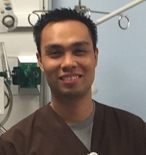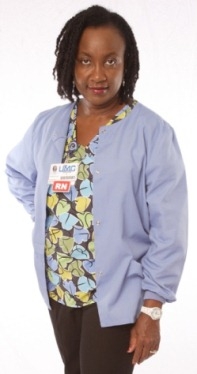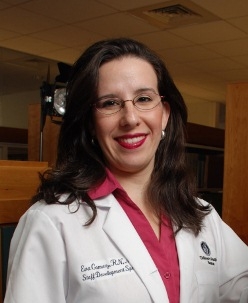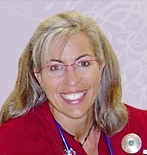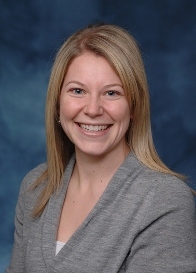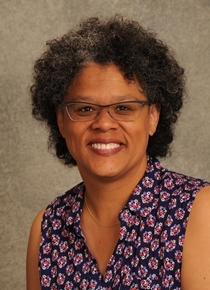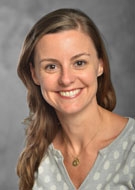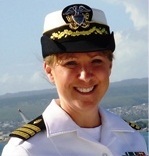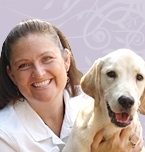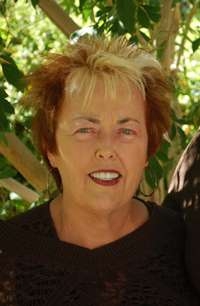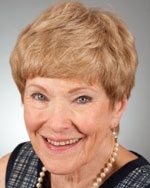What Do Pediatric Nurses Do?
Pediatric nursing professionals work in a variety of roles. Explore these "day in the life" interviews below to learn:
- What they actually do in a typical day, week, or month
- Favorite things about their job
- Their biggest challenges
- Education and experience
- Advice for students
Thank you for exploring a rewarding career in pediatric nursing!
Raulin D. Feria, BSN, RN-BC, PHN, CPN, CCRN is a Pediatric Critical Care Clinical Nurse at a large community hospital. An essential part of the healthcare team, he provides critical care for children and often rotates between departments, depending on staffing needs.
What is your job title?
I am a Pediatric Critical Care Clinical Nurse III at a large community hospital (Huntington Hospital in Pasadena, CA). Prior to that, I was a Cardiothoracic Intensive Care Staff RN at a freestanding children's hospital (Children's Hospital Los Angeles).
What is your favorite thing about your job?
It never gets boring! Every single day sparks new learning, new knowledge and new discoveries. Hearing stories from patients, their families and even from my colleagues inspires me to be a better nurse every day. Pediatric critical care is a very intense, but at the same time, a highly rewarding job. To witness how a severely ill or injured child recovers and bounces back to being a normal kid again is my favorite, almost magical moment.
What is your biggest challenge?
Living and working in California means being exposed to a very diverse population. Not only do I have to customize my care for different cultures, I also have to somehow learn a new language other than English. Although translators are available 24/7, I feel that I could be more personal with my patient and family education if I were fluent in Spanish or an Asian dialect.
Describe a typical day.
I work a 12-hour night shift, 3 times a week, from 7pm to 7am. Depending on staffing needs of the hospital, I can work in the Pediatric Intensive Care Unit, the Pediatric Acute Care floor, or the Newborn and Infant Care department. I love how I can rotate or "float" as I'm always eager to attend to different patient ages with unique developmental stages.
A typical night shift can range from heart pumping actions like resuscitating a child, assisting doctors in placing life-saving lines and tubes, or something as simple as feeding a baby. It can also be a shift where I can help ease a mother's anxiety or have the chance to promote healthy bedtime rituals for a hospitalized preschooler. There's always an opportunity to make a difference in the lives of others, at any stage, at their most vulnerable moment.
I love all the members of our healthcare team, as we all work toward one common goal of providing a family-centered healing environment. I coordinate care with my respiratory therapist when a patient is on a breathing machine; I seek advice from our dietician for optimal tube feeding nutrition; I refer my rehabilitating patients to our physical therapist; I double check with our pharmacist when a doctor orders an unfamiliar drug... the list goes on. In other words, I am the "glue" that holds every member of the team intact.
What education or experience did you need to achieve your role?
My academic history spans thousands of miles away from the US. I obtained my Bachelor of Science in Nursing (BSN) in the Philippines in 2003 and became a Registered Nurse in my country after graduation. I took and passed several international nursing competency exams and English proficiency assessments before I was able to sit for the US RN licensure test (NCLEX).
I chose to specialize in Pediatrics and could not imagine doing anything else. I became a Certified Pediatric Nurse (CPN) in 2010, a Certified Pediatric Critical Care Nurse (CCRN) in 2011, and was appointed by Pediatric Nursing Certification Board (PNCB) as a CPN champion shortly after. I am indeed a huge supporter of professional growth and excellence through certification and life-long learning.
Currently, I am enrolled in my Master of Science in Nursing (MSN) with a focus on Leadership and Education. My goal is to uplift pediatric nursing as a valuable healthcare specialty at the national level and perhaps teach and encourage students to become pediatric nurses just like me.
What advice would you give to students interested in your role?
Never stop exploring things that will challenge you. Sometimes it might be out of your comfort zone but you'll never witness the full bloom if you don't give it a try. Working with sick babies and children is one example that I used to think I could never do when I was a nursing student. But I learned how to appreciate the challenges and rewards that come with it.
Be humble and respectful; allow other coworkers to be a part of your learning journey. Most importantly, maintain a work-life balance: breathe, eat healthy, sip some tea, meditate when you are stressed, talk to a friend, plan for a nature trip. A 12-hour job won't feel like long hours if you are physically and emotionally invigorated.
Shelley Burke, BSN, RN, CPN is a Pediatric Travel Nurse. She is hired to work in a specific location for a limited amount of time to help hospitals during times of nursing staff shortages.
What is your job title?
I am a Pediatric Travel Nurse. A travel nurse works for a contracted period of time at a hospital either in her home state or in another state if she or he chooses to.
What is your favorite thing about your job?
My favorite thing about my job is caring for my patients. I truly enjoy the time spent with my patients and their families. Caring through the acts of teaching, supporting and encouragement are the things that make my day. I also learn a lot from my patients as well, and they help to enrich my experiences as a nurse.
What is your biggest challenge?
My biggest challenge as a travel nurse is being away from my family for an extended period of time, especially if my job assignment is out of state and visits with my family are far and few in between.
Describe a typical day.
My typical day starts at 7:00 am with first receiving shift report from the off going shift nurse(s), then I am off to my twelve hours shift, which ends at 7:30pm and the cycle of hand off shift report is done once again. I typically work three shifts a week with varying work days each week and would pick up extra shifts when there is a need or a request is made by my manager for additional help.
A normal assignment on a pediatric unit in most states is four to five patients; in other places that ratio can be higher. Many hospitals do team rounding. This is where the doctors and the assigned nurses visit each patient and discuss with them the plan of care for the day. In other hospitals the doctors do rounding as a team without nurses present and some doctors visit their patients directly. I prefer rounding with the doctors, which helps to keep each other in the loop as to the care and condition of the patients.
All hospitals have specialized supportive staff that are invaluable to assisting doctors and nurses to take good care of patients. Such staff are respiratory therapists, physical therapists, speech therapists, dieticians, child-life specialists, and volunteers. All of these people are needed on the healthcare team to assist patients in their recovery to good health.
What education or experience did you need to achieve your role?
A travel nurse is a Registered Nurse (RN) of two or more years of nursing experience in either general nursing or in a nursing specialty, such as pediatrics, obstetrics, medical-surgical, labor and delivery or intensive care nursing. She or he has to be competent, flexible, and adaptable, and she or he must be able to function efficiently in a new environment. Orientation for a travel nurse is limited to a few hours or just one day; you are there to get on board with the team and quickly assimilate into your new working environment. This type of mobile nursing is not for everyone, but for those who do it, they grow to love and enjoy the flexibility of choosing when and where they want to work.
What advice would you give to students interested in your role?
Anyone who has an interest and a passion for nursing should do it! It is one of the most rewarding professions one can have. There are so many specialties in the field of nursing which makes one's options limitless. Pediatric travel nursing is the option that I have chosen for over a year and a half now and it has been richly rewarding for me.
Eva Gómez, MSN, RN-BC, CPN is a Staff Development Specialist at a major children's hospital. She impacts patient care by educating nurses about how they can improve their practice.
What is your job title?
I am a Staff Development Specialist in the Clinical Education and Informatics Department.
What is your favorite thing about your job?
I love teaching. I am passionate about educating nurses on how they can improve their practice and to help them reach their educational goals for their nursing career. My hope is that educated nurses will provide excellent care to all patients.
What is your biggest challenge?
I don't have one single biggest challenge, but my goal is to challenge myself every day to learn as much as possible so I can be ready to teach nurses the information they need, when they need it, and provide it in the most innovative way possible.
Describe a typical day.
On a typical day I can teach nursing orientation classes: how to communicate effectively in the clinical setting, how to de-escalate an upset person, and help nurses learn about cultural competence. I also participate in creating simulation scenarios for new graduate nurses dealing with how to recognize a patient's changing condition. We use a special manikin called Sim Man 3G; he can breathe, talk and has a heartbeat. Some days I will meet with the nursing education council, nursing subject matter experts and nursing leadership. During all these meetings I participate in the decision-making process for how nurses practice and take care of patients, plus I also offer the educational resources they will need to accomplish their goals. In addition, I mentor nurses who want to advance their education to reach a higher degree or obtain a certification in their area of specialty.
What education or experience did you need to achieve your role?
In order to become a Staff Development Specialist I worked as a nurse for over 12 years, I got a Master's Degree in Nursing Education, and I became certified in my two areas of specialty. I have my CPN (Certified Pediatric Nurse, of course!) and I am also Board Certified in Nursing Professional Development.
What advice would you give to students interested in your role?
Get experience working as a nurse first and understand what nurses do in every day practice. Pursue a higher degree in nursing, such a Master's or beyond. Learn how to teach, and teach well. Never stop learning; being a great educator means that you always continue to grow and learn as much as you can.
Lindsay Grubensky, CPEN, CPNP is an Emergency Department Pediatric Nurse Practitioner (PNP) at a major children's hospital. She provides fast-paced assessments of patients while managing family expectations.
What is your job title?
My title is Pediatric Nurse Practitioner, Emergency Medicine.
What is your favorite thing about your job?
I work in a large metropolitan hospital in Southern California that specializes in the care of children. In Emergency Medicine, I am able to see a huge variety of health problems. Fever, orthopedic injuries, sore throats, rashes, dental infections, lacerations, abdominal pain, vomiting and diarrhea, constipation, headaches, vision changes, seizures with fever, conjunctivitis, foreign bodies in the ear or nose (beads, Legos, etc.), ear aches, pneumonia, asthma, and more.
There is a never-ending stream of challenges and this really keeps me on my toes. We have a saying, "When you hear hoof beats, expect to see horses...but don't forget about the zebras." This reminds us to be aware of the sore throat that is much more serious than strep throat, or the headache that could be from a brain tumor, or the abdominal pain that is from appendicitis and not constipation. It is my job to find those less frequent life or limb threatening conditions hiding amongst a sea of common self-limiting, minor illnesses. This is the real challenge and thrill of Emergency Medicine: knowing which children are truly sick and how to evaluate this appropriately without running every test in the book...and doing it quickly.
In addition, now that global travel is so easy, I have seen diseases I had only read about in books: malaria, Dengue fever, measles, and ciguatera fish poisoning to name a few. It is not within my means to know everything about every disease or condition, so when something very unusual comes up, I gladly consult the specialists on call: Infectious Disease, Toxicology, Rheumatology, Surgery, etc.
In my facility I function like a Pediatrician. I see patients independently, admit those who need further care, write orders for procedures and medications and do procedures (suturing, lumbar punctures, draining abscesses, etc.). However, I am surrounded by other NPs as well as well-trained Emergency Medicine physicians with whom I can seek out opinions or consults as needed.
What is your biggest challenge?
Time and the expectations of the parents. I never have enough time to spend with the families as I would like. Education for the families is an absolute must: I want them to know how to handle the next asthma attack or fever without feeling like they need to come in every time. Parental expectations must be managed from the beginning of the encounter. A child with 2 weeks of abdominal pain likely has a condition that I cannot solve in 2 hours. The parents need to be told right away that although I am likely not going to be able to solve the problem this visit, I will do some preliminary testing and then get them funneled to the specialist that can continue their care. Managing the expectations of the families is HUGE. An Emergency Department (ED) is not a deli--not everyone will get what they want and not everything is available all the time. It is not the job of the ED NP to solve every problem. Our job is to assure the child does not have a life or limb-threatening condition that needs emergent specialty care and/or admission. Once these conditions are ruled out, the family can continue follow up with their primary care clinic or specialist.
Describe a typical day.
I see 18-26 patients in an 8-hour shift, depending on the season and the level of illness. Some can be discharged with a 10-minute evaluation and some need hours of care with IV fluids, labs, x-ray/CT/MRI/specialty consult, etc. While the complex patient is having labs drawn or imaging processed, I see other patients -- there is no 'down time'. There is always another patient to see or a chart to finish. There are no meal breaks -- coffee, power bar, etc. are all eaten between patients while charting. I work very closely with the nursing staff, respiratory therapists, social work and all types of specialists.
Do you have Monday through Friday 9 to 5 hours?
In emergency medicine, there are staggered shifts, and these vary depending upon the season (summer is light volume of patients, winter is heavy). In general, our shifts are 10 am to 6 pm, 4 pm to midnight, 6 pm to 2 am, and 8 pm to 5 am. We all take turns doing all the shifts. We work weekends and holidays -- the ED never closes. We cover sick-call in case a work mate is ill, but this is rare.
What education or experience did you need to achieve your role?
I obtained a 4-year Bachelor of Science in Nursing degree and worked at an RN in pediatric nursing for about 16 years before I went to graduate school and obtained a Master of Science in Nursing degree in pediatric primary care. I have been certified in Pediatric Advanced Life Support (PALS) and the Emergency Nurse Pediatric Course (ENPC) for many years and am also an instructor in these courses. I also have my National Certification as a Pediatric Nurse Practitioner, my DEA number (to prescribe medications), my Basic Life Support (BLS) and my Advanced Cardiac Life Support (ACLS).
What advice would you give to students interested in your role?
This is not an easy job but it is filled with tremendous diversity and challenges. Be prepared to work a variety of shifts, weekends and holidays. You may take call or have to carry a pager (sounds like fun, but it really is not). Even if this is not your true calling, working in an ED for a few years will enhance your rapid assessment skills and broaden your scope of experience. This will make clinic work seem easy. I wish you the best of luck, no matter what career path you choose!
Casey Benedetto, MSN, RN, CPN is a Clinical Education Coordinator at a major children's hospital. She impacts patient care by supporting nurses' professional development.
What is your job title?
I am a Clinical Educator and my formal job title is Clinical Education Coordinator.
What is your favorite thing about your job?
My favorite thing about my job is having the opportunity to work with the nurses and other members of the health care team at our hospital. I know that what I do every day to support their nursing skills and the development of their careers not only benefits them, but our patients and families as well.
What is your biggest challenge?
The biggest challenge in my job is keeping up with the fast pace of health care. As a Clinical Educator, you must be up to date because you are responsible for teaching the nurses new information and skills. You also have to be able to teach information in a way that makes it both relevant and exciting to your audience.
Describe a typical month.
In an average month I am teaching in the classroom about 50% of the time. For the other 50% of the time, I am working on planning and updating the classes that I teach or working on special projects related to nursing education or nursing career development.
What do you do during your day?
I work in a classroom setting at the hospital teaching nurses and other members of the health care team. I also spend time meeting with my co-workers or other health care team members to work on special projects.
Do you have Monday through Friday 9 to 5 hours?
I have Monday through Friday 9 to 5 hours, however, since I work with clinical staff members I need to be able to adapt to their schedules. That means there are times when I am here at 7 am and times when I am here until 11 pm. The ability to be flexible is important.
How do you interact with other members of the healthcare team?
I work directly with nurses, respiratory therapists, physicians and other health care team members in the classroom. The majority of my work is directly with nurses assisting them to develop their clinical skills and careers.
How do you feel your role impacts the pediatric nursing arena on a daily basis?
I like to think my impact as a Clinical Educator in pediatrics reaches far beyond what my impact could be as an individual. Teaching the nurses and other members of the health care team the skills they need to be excellent clinicians means that your reach extends to the patients and families that they care for through your teaching.
What education or experience did you need to achieve your role?
I have a Bachelor's degree in Nursing and a Master's degree in Nursing Education. Prior to working as a Clinical Educator, I worked as a staff nurse on a pediatric surgical unit at a children's hospital. I later became the Clinical Educator for that unit, and then took my current position. In my current position I mainly work with new graduate nurses as they are beginning their careers in pediatric nursing. To become a Clinical Educator you will need a combination of the right educational preparation in school as well as clinical experience.
What advice would you give to students interested in your role?
Being a pediatric nurse is an extremely rewarding and challenging career. Working as a Clinical Educator is a very important role because your skills and attitudes influence nurses and members of the health care team throughout the hospital. If you are interested in becoming a Clinical Educator you will need the right education and a strong clinical background as well as the desire to teach and motivate others. You will need to be flexible and creative. You will also need to be comfortable with stepping away from direct patient care and knowing that what you do still has a huge impact on patients and families. Look for opportunities to be a teacher in your nursing career whether it is with patients and families or with your co-workers. You will put yourself on the right path!
Kim Pierce, DNP, RN, CPNP is a Pediatric Nurse Practitioner and instructor for HIV+ youth. In addition to clinical research, she helps teens with HIV stay healthy.
What is your job title?
I am a Pediatric Nurse Practitioner and Instructor for the University of Colorado School of Medicine Pediatric Infectious Disease Department's Children's Hospital Immunodeficiency Program (CHIP). That is the long title--the short one is Pediatric Nurse Practitioner at the CHIP program.
What is your favorite thing about your job?
I love that my job is always changing. I provide care for teens living with HIV infection. HIV is the virus that causes AIDS. The medications we use to help people living with HIV are always changing and improving. I really enjoy spending time with my patients and working with them to stay healthy and to take their medications. Today, many people who are HIV infected can live a normal life as long as they stay on their medications and take care of themselves.
What is your biggest challenge?
The biggest challenge with my job is helping others both inside and outside the medical community to understand what HIV is all about. Many people still think they can get HIV by hugging someone or sharing food or utensils with them. There is a lot of stigma surrounding HIV and stereotypes about people who live with HIV. Many people think that if you have HIV you will die. That is simply not true anymore as long as people have access to healthcare, take their medications and stay healthy. HIV can happen to anyone, not just "certain" people.
Describe a typical day.
One thing I love about my job is that each day is different. I rarely do the same things every day. Some days I see HIV positive youth in our Adolescent Clinic for routine visits and primary care, other days I am working on research studies in HIV. Then there are days where a new patient is referred to our care and we all work together as a team (infectious disease doctors, nurse practitioners, social workers and a nutritionist) to meet with them, talk about their diagnosis and discuss what their healthcare will look like going forward.
What education or experience did you need to achieve your role?
I earned a Bachelor of Science in Nursing, then a Master's degree as a Pediatric Nurse Practitioner and then I chose to also get a doctorate (DNP - Doctor of Nursing Practice) degree as well. Many of the nurse practitioners that I work with have a Master's degree, which is sufficient to work in this role.
What advice would you give to students interested in your role?
One of the best things about nursing is the variety of options you have in terms of where you want to work. Not many other degrees can offer you so many choices about where and how you want to practice nursing. If you choose to continue your education beyond an Associate's degree or a Bachelor's degree and to work beyond the level of a Registered Nurse, there are many options. I have found that more and more people both inside and outside the medical community have a better understanding of what Nurse Practitioners do. It is up to us to continue to provide education to the public and others in the medical profession about what we can offer to clinical practice and/or research. My advice is to work hard, find a good Nurse Practitioner who can mentor you and take pride in knowing that you are part of a healthcare team. Never forget that what you bring to the team as a trained Nurse Practitioner is equally as important as what others in the medical profession bring. Be proud of that!
Melissa Jones, CPNP-AC is a Pediatric Critical Care Nurse Practitioner at a large children's hospital. She provides care for critically ill children, while supporting her patients' families and her team members.
What is your job title?
I am a critical care nurse practitioner in the Cardiac Intensive Care Unit at Children's National Health System.
What is your favorite thing about your job?
I love working with the whole team to problem solve at the bedside. Working through various types of physiology and developing interventions is the best part of my job. I love when a sick patient is admitted from the OR and we're able to stabilize them, then over the next day or two watching them start to eat, and ambulate, and interact with their parents.
What is your biggest challenge?
My biggest challenge is working with families through tragedy. Though we don't see many patients die, when I do it's never easy. My heart breaks for the family and I only hope that I can support them through such a difficult time.
Describe a typical day.
We start radiology rounds at 7:30am, so I examine all of my patients, review their labs and medications and develop a plan for the day beforehand. We start our multidisciplinary bedside rounds immediately after radiology rounds. This is an opportunity for the provider team, the bedside nurses, respiratory therapists, dieticians, pharmacists and parents to discuss the patients' status and develop a plan. Once rounds are finished, I continue to monitor my patients and ensure that our goals for the day are met. I may discuss interventions with consultants, interpret additional imaging or lab studies or perform procedures.
What education or experience did you need to achieve your role?
I graduated with a BSN and worked in the pediatric critical care setting for 6 years, then went to school part time to earn a MSN. I took my Acute Care Pediatric Nurse Practitioner board exam and am licensed in the District of Columbia to practice. I've been licensed as a nurse practitioner for 6 years.
What advice would you give to students interested in your role?
Pursuing advance practice education is a huge investment of time and money. I would suggest that having clinical experience before school helps to direct the right path for your advance practice role. Shadowing a few different nurse practitioners is also a valuable experience to help ensure that you make the right decision.
Ingrid Cook, MSN, APRN, CPNP-PC is a Pediatric Nurse Practitioner who provides care for children of U.S. military families as well as children of civilian families in her community.
What is your job title?
I am a United States Navy Nurse Corps Reservist, Primary Care Pediatric Nurse Practitioner, Reserve Pediatric Nurse Practitioner/Pediatric Nursing Specialty Leader.
What is your favorite thing about your job?
One of my favorite aspects of my Pediatric Nurse Practitioner (PNP) job in the Navy Reserves is the opportunities to care for children of the United States military service members and also supporting humanitarian missions involving children around the world. In my leadership role as the Reserve Navy Nursing Pediatric Specialty Leader, I am involved in serving as a mentor and advisor to over 30 reservists who specialize in pediatric nursing.
What is your biggest challenge?
Serving in the Navy reserves involves a big time commitment. In addition to my full-time civilian PNP job working on a Children's Mobile Health Unit sponsored by the Children's Health Fund at Our Lady of the Lake Children's Hospital in Baton Rouge, Louisiana, I am required to drill with other members of my military medical unit one weekend per month and also 2 weeks or more on active duty each year. As a reservist, I am still responsible each week for responding to military emails and unit job duties in addition to the work I do while attending monthly drill weekends at the military reserve center.
Describe a typical day.
On a typical day, while serving in the navy reserves on active duty as a PNP, I am assigned to work in a Pediatric Outpatient Clinic at a Navy Hospital in the United States. The military pediatric clinics are open Monday through Friday from 8am to 5pm. I normally see 15 to 20 patients per day including well-child visits and acute sick visits. The healthcare team in a Navy Hospital clinic includes Pediatricians, Nurse Practitioners, Pediatric and Family Practice Residents, Navy Hospital Corpsman who function as Licensed Practical Nurses (LPNs), military Registered Nurses (RNs), and civilian RNs/LPNs/Medical Assistants. As a part of the military healthcare team, I have daily interactions with other members in order to provide the necessary care to the pediatric populations we serve in the military. One of the most important roles as a navy nurse is training our hospital corpsman who are on the front lines providing medical care to US Marines.
As the reserve specialty leader for pediatrics, I participate in teleconference calls with other Navy reserve nursing specialty leaders every other month to discuss national issues affecting military nursing. I also assist the Navy medical recruiters by reviewing applications and performing interviews for nurses who would like to join the Navy Nurse Corps.
What education or experience did you need to achieve your role?
First, I completed my Bachelor of Science degree in nursing in order to be selected to serve in the United States Navy Nurse Corps on active duty or the reserve nurse corps component. Secondly, I enrolled and completed my Advanced Practice Nursing Degree Program specializing in the Pediatric Nurse Practitioner track. In most states, you must pass a national board certification exam for PNPs after you complete the nurse practitioner program in order to obtain your Advanced Practice Registered Nurse licensure to practice as a PNP.
What advice would you give to students interested in your role?
First and foremost, you must enjoy providing care to children before you consider becoming a pediatric nurse or PNP. As a PNP, you are given a unique privilege to serve our nation's future generations, allowing you to directly impact the health and future for years to come. I view my dual role as a civilian PNP/navy nurse corps reservist as a blessing which allows me to serve my country and my local community striving to make a positive difference in the lives of the children entrusted to my care. I can think of no greater job in this world than helping a sick child feel better and teaching skills to children that will lead to a long and healthful life.
Kristy Engel, MSN, CPNP-PC is a Pediatric Nurse Practitioner providing care through international medical missions. She connects health care resources to children around the world in need and has a special interest in nutrition.
What is your job title?
I am a Health Care Resource Missionary.
What is your favorite thing about your job?
Probably the best part about my job is being able to connect resources (people, supplies or funding) to the health care needs I see when I visit places around the world. Watching children smile as they receive simple gifts of toothbrushes, food or clothes makes the difficult work easier to accept.
What is your biggest challenge?
There are a couple of things that make my job a challenge. First, in some of the places that I work it is very difficult to find basic needs like food, water and shelter. I have worked with the Haiti earthquake emergency relief, and we had trouble finding things for ourselves to survive, as well as finding enough resources for the people we were serving. Another big challenge is convincing people that they can help and that they have something to give to the world. Everyone has something to give the world. Many people believe they don't have enough skill or courage to see and work in some tough areas of the world. What I've discovered, though, is that just showing up can offer hope to a place that has given up and each of us can do that.
Describe a typical day.
A typical day for me depends on where I am at the time and what project I'm working on. I think that's the best part of my job... it changes to meet the needs that I find. When I worked in the Dominican Republic and managed medical teams, we would see about 150 people every day in villages without running water, electricity or telephones. We had to diagnose and treat illnesses without the basic resources that are available in the United States. It was challenging but also rewarding. During the Haiti earthquake relief, we saw anywhere from 400 to 600 people in one day, often dressing wounds, providing food and water as well as needed medications for their illnesses. The medical teams that I work with are a combination of physicians, nurses, nurse practitioners, physician assistants, EMT's and lots of non-medical volunteers.
My hours are always different unless I'm in my office working on emails and coordinating projects. Generally, relief medical work will start with a morning orientation by 7 am and then travel to the site by 8 am. We usually work for 6 to 8 hours without a break to try and see as many patients as possible. Often when we return to our base site, there are patients brought to us that are more serious and can't wait until the next day or the general care of our own staff who get sick during the trip. We also spend the evenings preparing for the next day by restocking medications and supplies for the clinic.
During the medical clinics, I often become the resource person for tropical pediatric diseases as most of the people who volunteer their time with me do not have tropical disease experience. The biggest questions are usually about skin diseases or parasites. I am also responsible for making sure we have experienced people in each area of the medical clinic: triage, consultations, translation, pharmacy, and food/clothing distribution. One of my jobs is also to coordinate with a local health care person so that we are working together and not just deciding on our own what needs to be done.
One of the greatest impacts that I've had in my career is to change the health care of children in rural villages in the Dominican Republic. When I first started working in over 100 villages, I saw at least one case of severe protein malnutrition every single week. When I left the Dominican Republic after 12 years, I had not seen more than 2 cases in over 5 years. Sometimes, just providing basic nutrition education, vitamins and parasite treatment can mean life and death for a child.
What education or experience did you need to achieve your role?
I have a Bachelor's of Nursing degree as well as a Master's degree in Nursing with a focus on general pediatrics. I also think it is very important to continue learning about how I can improve my care so I am currently working in a Master's Certificate program in International Nutrition through Tufts University and the United Nations University.
What advice would you give to students interested in your role?
I think everyone should take a medical trip overseas at least once in his or her life. You will never see the world the same again and you will have a better understanding of your future patients if they come from other cultures. It is also important to see how you can make a difference in someone's life without having all of the technology that we have in the U.S. right now. Anyone interested in medical work around the world should contact organizations that send out teams and join a team. Then, as you see different places and what needs there are, you'll have a better understanding of where your skills are most needed and what work is most fulfilling to you.
Diana Faugno, MSN, RN, CPN, SANE-A, SANE-P, FAAFS, DF-IAFN is a Forensic Nurse Examiner. She provides care for pediatric victims of abuse.
What is your job title?
I am a Forensic Nurse Examiner.
What is your favorite thing about your job?
My favorite thing about my job is working with children and their parents.
What is your biggest challenge?
Believe it or not it is not the kids but their parents.
Describe a typical day.
I would be called into the Barbara Sinatra Children's Center by law enforcement who request a forensic examination based on what the child stated to the forensic interviewer. The paper work usually takes longer than the examination and speaking with the parents, Child Protective Services (CPS) or the investigator. Some days I will see two to three patients and other days there will be no scheduled forensic examination based on what is being reported in the community. My hours are variable. I am pretty much on call most days and nights.
I am currently looking for an experienced nurse to share some of the call with. This is not easy because many people who work full time are guaranteed hours and pay. I interact with law enforcement and the district attorney's office when called for reports or to discuss a case. Each case is individual and is evaluated on the history and investigation. Monthly meetings help all of the team members who have questions or need updates on case status.
What education or experience did you need to achieve your role?
I have over 30 years of pediatric nursing experience and over 20 years of child abuse experience.
What advice would you give to students interested in your role?
The best way to get started in this area is to locate your community child abuse center or talk to your emergency room director about who sees children for child sexual abuse and physical abuse. Follow these people for a day and see what their job is. Talk to the staff and find out what they like best about their job and how you can learn more. Today there are programs online you can take that provide education in child abuse. This will prepare you for your working in this area.
Sandra Mott, PhD, RN-BC, CPN is a Nurse Scientist and Research Consultant at Boston Children's Hospital in the Cardiovascular and Critical Care Program. She also serves as Co-director of the Nurse Science Fellowship as part of the Academy of Scholarship and Clinical Inquiry. Her expertise is in qualitative research with many years teaching and conducting studies. Today she provides mentorship to nurses in the Nurse Science Fellowship for their projects.
Dr. Mott received the Margaret Miles Distinguished Service Award in 2015 in recognition of her outstanding leadership, participation, and contributions toward achieving the goals of the Society of Pediatric Nurses. Her teaching, service, and scholarly pursuits include innovative integration of theory and concepts related to Nursing Health Assessment, Health Promotion, and Growth and Development through the Life Span. In addition to her many accomplishments, she also actively mentors faculty.
What is your favorite thing about your job?
I have often said that I have the ideal retirement job. I get to do what I thoroughly enjoy without the usual associated politics and stressors. I work with wonderful nurses who are excited and committed to clinical inquiry, who have great questions and ideas for advancing the science and moving pediatric nursing forward.
What is your biggest challenge?
There is never enough time for all there is to do.
Describe a typical day.
Every day is different. There are regularly scheduled meetings related to clinical inquiry that I attend. Many of my meetings are with the Nursing Science Fellows; a nurse scientist meets with each one for an hour every other week. I work with nurses from all roles who work in the cardiovascular and critical care programs. The Fellowship is a 2-year program consisting of didactic quarterly forum and the every other week mentoring session. I do a fair amount of teaching during the quarterly forums. Since my own questions have been best answered by qualitative methods, I have gained expertise in that methodology and generally work with the fellows whose questions are aligned with qualitative methods.
One of the first activities after the fellow has identified and refined her/his question is to write an abstract and protocol for purposes of funding requests and/or institutional review board approval. Depending on the research and improvement science projects our fellows are doing, I may be interviewing participants or facilitating focus groups, analyzing data with the primary investigator, or identifying findings. Many hours are spent working on and perfecting dissemination in the form of a poster, podium presentation, and manuscript.
I also serve as the methodologist on a couple of dissertation committees of staff nurses who are completing their PhDs.
What education or experience did you need to achieve your role?
As implied above, this is my retirement job; I started my career as a bedside pediatric nurse. I went back to school for my master's degree and began teaching nursing care of the child. My early career combined teaching and patient care, and once my own children were older and in school, I focused on nursing education, earning my PhD and advancing my role and responsibility at the university for 34 years.
The Fellowship enables nurses of all educational backgrounds to work with nurse scientists to formulate their question, surround it with rigor, and improve patient care.
For my role I need the PhD as that educational experience provided the research tools that I use every day. I also need the years of clinical experience to fully understand the clinical situation, the acuity level of the patient population, and the nursing work, both the skills and cognitive processing performed daily.
What advice would you give to students interested in your role?
- Don't underestimate the value of clinical experience as that is the origin of the questions and the demonstration site of outcomes.
- The role of the nurse scientist draws on diverse experiences and education but most importantly it draws on a commitment to clinical inquiry and the perseverance to complete research to advance the science.
- You also need the educational background to understand the fine points of clinical inquiry and direct/guide others in its use. All nurse scientists have their earned PhD as that is the only research degree. It is wise to get it in nursing although not essential.
Steadman McPeters, DNP, CRNP, CPNP-AC, RNFA is a nursing instructor at a large state university. He is responsible for preparing tomorrow's pediatric nurse practitioners.
Dr. McPeters is known for his passionate care of pediatric patients. His research and clinical interests include: pediatric surgery with a central focus on congenital diaphragmatic hernia neonates, pediatric obesity, and pediatric forensic nursing. He also encourages nurse practitioner students to be future leaders and recently developed a student membership for them in the state of Alabama as an arm of the Nurse Practitioner Alliance of Alabama (NPAA).
What is your job title?
I am an Acute Care Certified Pediatric Nurse Practitioner (CPNP-AC), and a Registered Nurse First Assistant (RNFA). In addition, I am an instructor at the University of Alabama at Birmingham (UAB) School of Nursing and a Specialty Track Coordinator for their Dual Option Pediatric Nurse Practitioner program.
What is your favorite thing about your job?
I love educating the future pediatric nurse practitioners of tomorrow!
What is your biggest challenge?
Teaching in a distance-accessible program is a challenge within itself. The face-to-face interaction is a challenge to recreate via a distance-accessible option.
Describe a typical day.
On an average day, I work distance-accessible classes, teaching students how to become evidence-based pediatric nurse practitioners. Some of the classes I teach include: Acute and Continuing Care Pediatric Nurse Practitioner I, II, & III, with a corresponding clinical practicum course, and also Procedures: Intubation and Basic Suturing for the Nurse Practitioner. Currently, I am not involved in patient care.
What education or experience did you need to achieve your role?
I needed a Masters in Nursing to begin my career at UAB. However, I also obtained my DNP and that will give me an opportunity for promotion.
What advice would you give to students interested in your role?
The role of a pediatric nurse is both rewarding and honorable. PNPs are caring for someone's child. In the field of pediatrics, you are not only caring for the patient, but the family as well.
